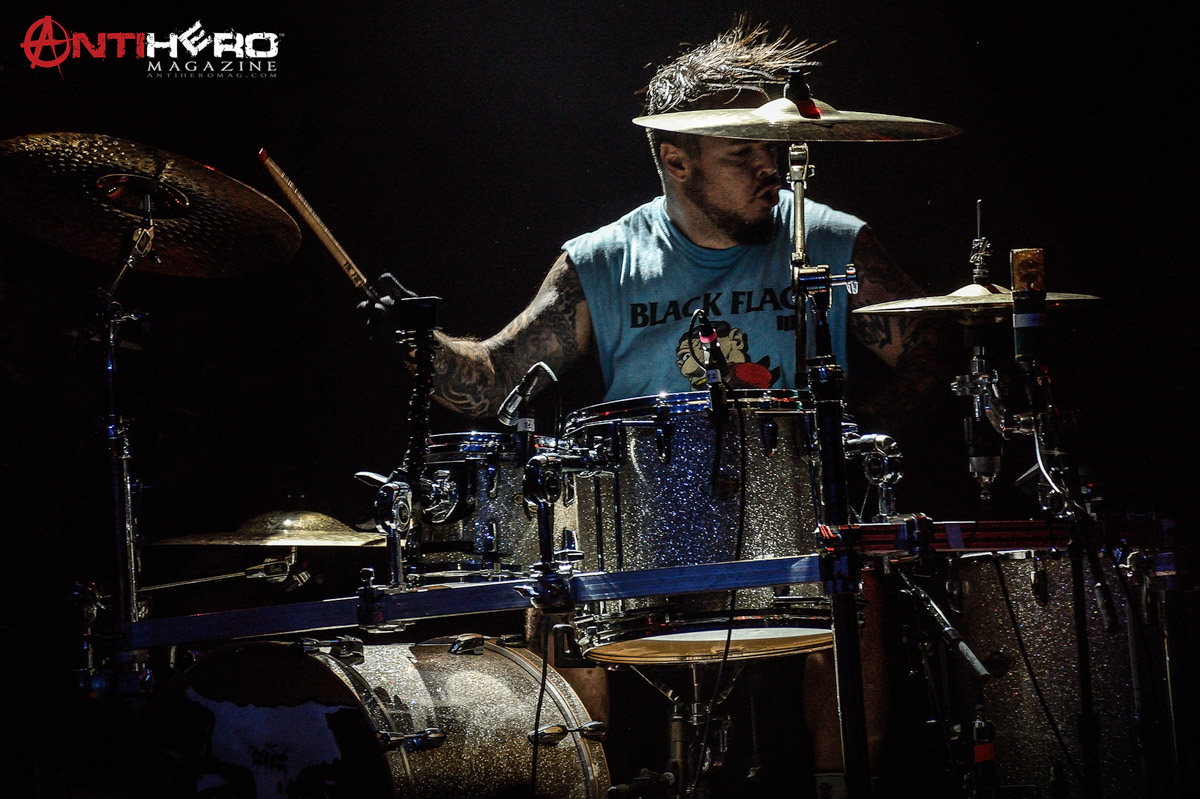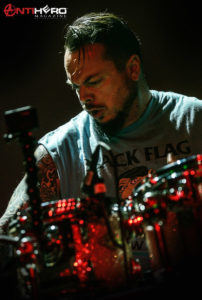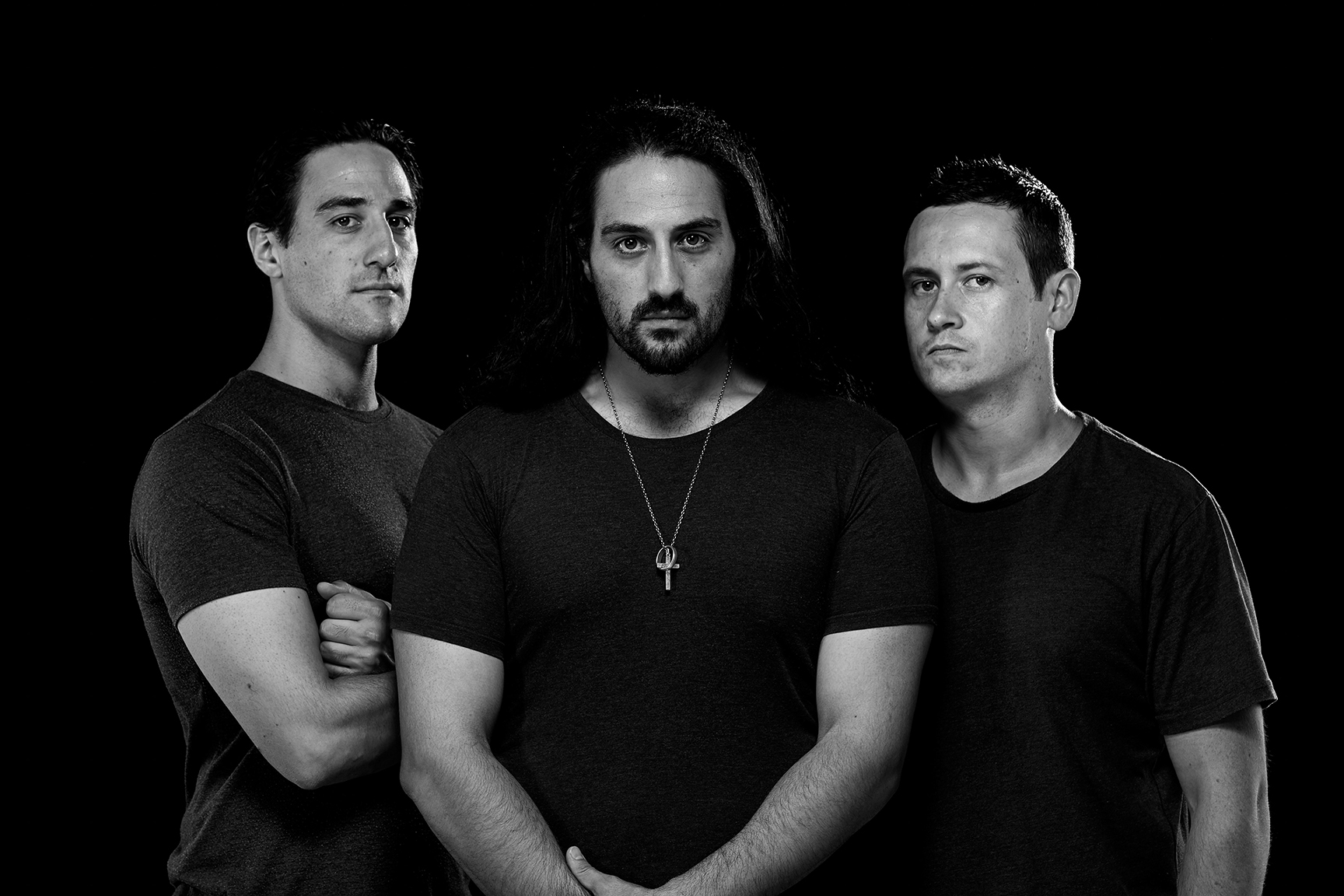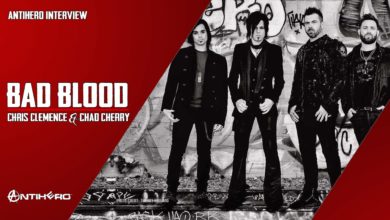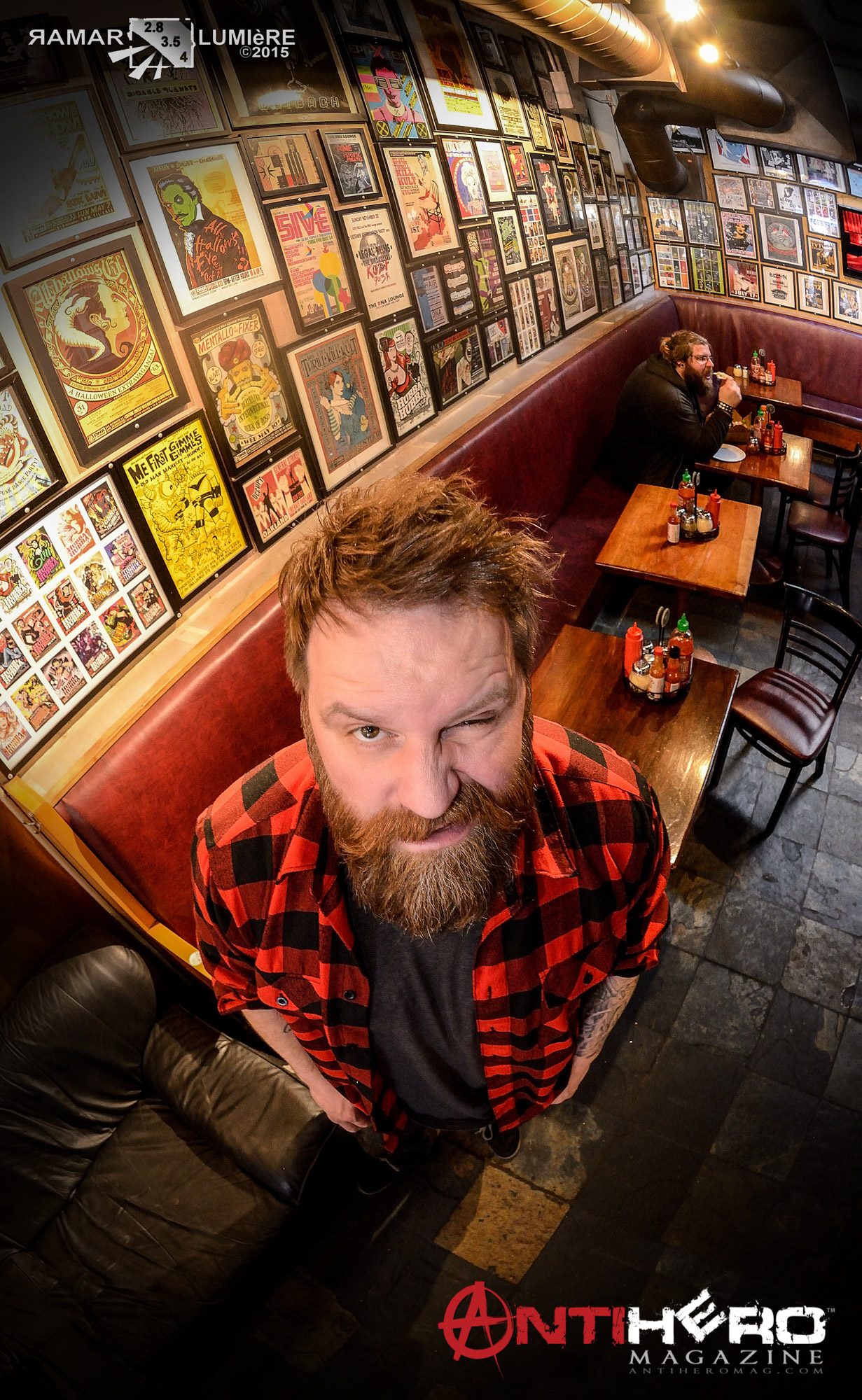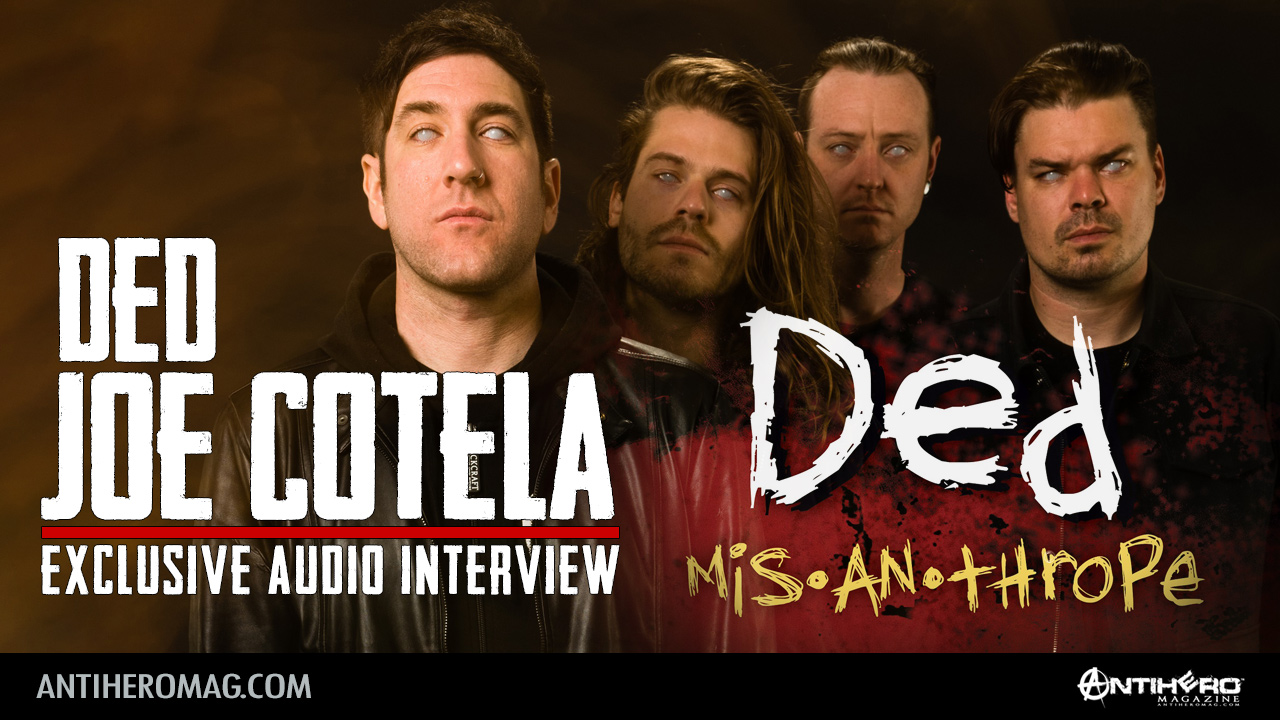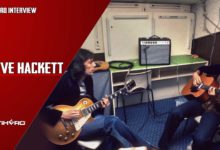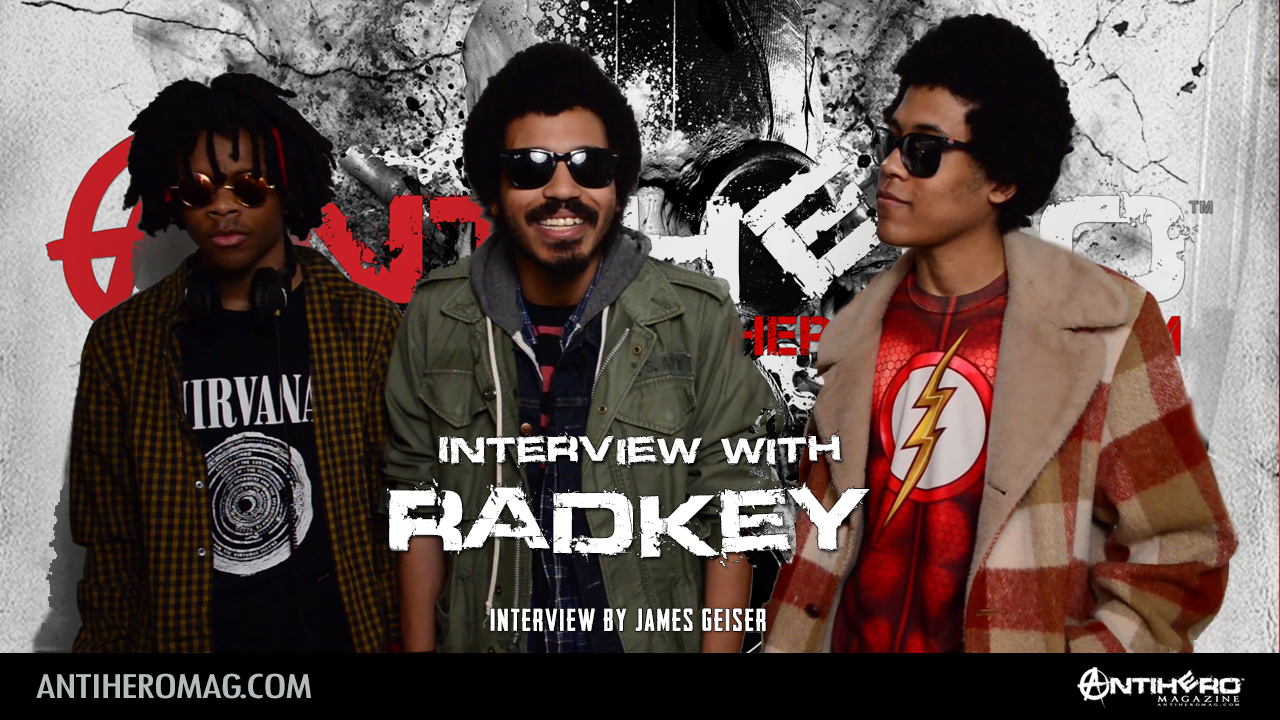Interview and photos by Greg Ramar
AntiHero Magazine‘s Greg RaMar sat down with legendary drummer Igor Cavalera of Cavalera Conspiracy to talk about his early influences, the legacy of Sepultura, his work with Cavalera Conspiracy and more!
[separator style=”line” /]
Greg Ramar: You grew up in, forgive me if I pronounce it incorrectly, Belo Horizonte, Brazil?
Igor Cavalera: That’s right.
What was it like being a kid in that town? Was it out of control? Was it crazy? What kind of a kid were you?
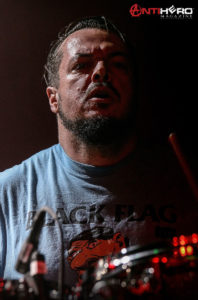 Well, it’s weird, because it’s a smaller town than São Paulo, which is the big city in South America. Which, for us it was cool in the way that we kind of like started our own scene there by starting Sepultura, and having a bunch of friends gather and listen to music. And I think that helped in the sense that we were not somehow affected by a big city where you have some much segregation and different styles. For example, for us we were listening to Discharge, or Venom, or Amebix. For us it was all Slayer, all that stuff, it was cool. It doesn’t matter if you have long hair, the whole thing for us by being in that city was a good thing. So I think that helped a lot later on with how we approach music, rather than what is in fashion. So that was kind of what was cool about being in Belo Horizonte. Of course, it had many other issues that were hard. Like, you know, for doing shows and things like that. One of the positive things I’m now looking back on is that we definitely learned how to look at music for music itself, not for whatever ‘thing’ is behind it.
Well, it’s weird, because it’s a smaller town than São Paulo, which is the big city in South America. Which, for us it was cool in the way that we kind of like started our own scene there by starting Sepultura, and having a bunch of friends gather and listen to music. And I think that helped in the sense that we were not somehow affected by a big city where you have some much segregation and different styles. For example, for us we were listening to Discharge, or Venom, or Amebix. For us it was all Slayer, all that stuff, it was cool. It doesn’t matter if you have long hair, the whole thing for us by being in that city was a good thing. So I think that helped a lot later on with how we approach music, rather than what is in fashion. So that was kind of what was cool about being in Belo Horizonte. Of course, it had many other issues that were hard. Like, you know, for doing shows and things like that. One of the positive things I’m now looking back on is that we definitely learned how to look at music for music itself, not for whatever ‘thing’ is behind it.
How important was music in the Cavalera household? Were your parents supportive of it? Was it something that the family just from day one grew into?
Yeah, if it wasn’t for them, and I think for most bands, their parents need to support their kids. We all know how music, it’s tricky and it’s a massive investment that you do. 99% of the time, you don’t get that money back. So if your parents aren’t really down with that, it’s impossible pretty much. Especially when you start at a very young age to play music. If your parents are not down with it, it becomes a lot harder. I’m really proud of my parents for being supportive of what me and Max did. They didn’t know what was going to happen as far as if we would be successful or not, but they really understood the passion we had for what we were doing.
Well, they were supportive, but were they musicians themselves? Did you inherit that from them?
No, no. We don’t come from a string of musicians or generations there. It was something that me and Max kind of started.
Was it just arbitrary that the drums came to you and the guitar came to him? How did that go down that way?
Well, it’s weird because I started playing drums very, very early, when I was like 6 or 7 years old. Before anything to do with a band, I was already a drummer. That’s how I ended up picking up the drums before we started to think about Sepultura. Then Max, he had to pick another instrument. At first he picked the guitar and we had a singer, and then when the singer left, he started singing, and doing the guitar and singing. It was kind of like he had no choice, I was a better drummer.
Were you guys like a pair musically? Did you discover a lot of music and a lot of bands together? Or was there a lot of, “Hey, check this out.” Back and forth?
We used to discover a lot of stuff together growing up. Nowadays, since we live in different places, it’s more about showing each other what we’ve been getting into. Which is also a really cool exercise. Because we go sometimes for a few months without seeing each other, and by the time we meet, there’s a lot of stuff we want to exchange musically. Especially me and Max, we’ve always been in the sense that we bring different styles to what we listen to, so I bring more of experimental stuff, where he will show me what’s going on nowadays in hardcore and metal. That mix really helps to write music.
The Alive record in a cassette, and actually me and Max put together money for each other, and he bought a Queen cassette, and I bought a Kiss. That was like 1980 I think, something like that. That was the first time we purchased, like we went out and bought it. Before we had tons of records at our house from my father, and some of the records later we started digging through and there were some Black Sabbath and stuff like that in my dad’s collection. But the first thing we went after was those two bands.
Who was an early drumming influence? I almost want to guess and say that it was actually your culture, your community, not necessarily a specific person, would that be correct?
Yeah, definitely. Growing up in Brazil you hear so drumming everywhere because of the Carnival and in general people seem to be very percussive. People seem to be beating on tables and making music all the time. That pretty much gets imprinted in you somehow. Of course, later on when I got into rock music and I started looking more into a specific drummer that I liked. Before that it was just the drum itself, it was something that I was totally in to.
Do you remember the first drummer that you identified with?
I think the first one was actually the guy from Queen, because me and Max in ’81 went to see them live in São Paulo. That was the first time I got to see a guy do a drum solo live, not just on the T.V. That was it. I was like, man, I want to do this with a band now, not just play in my bedroom or just practice drums for myself. That’s when I really clicked.
What was the draw? I read early on that you and Max were really in to Punk. What is it about Punk and Metal that has been a draw for you? What is it about that, that you identify with identify with so strongly?
It’s great because it has a lot to do with the energy. I remember also, me and Max digging through certain records and always we would find, like, this song. This song is the best … And usually it was the one with more raw power to it. Even though on the Sabbath record, if it would be like a ballad, we would like that’s cool, but that’s not it. If it was something a bit heavier, we would get into it. And eventually that moved to the point where we were like, man, this is it. That’s where hardcore, they get that. They were extracting the cool thing about metal and the cool thing about punk and kind of mixing it up and bringing this style that me and Max to this day, that’s something that we really love. Those old records, and also new bands.
I never knew the story of how Roadrunner found you guys. How did you get signed? And I have to ask, did you get a signing bonus, and do you remember what you did with that money?
I don’t think we got a bonus, man. I don’t think, no, no. At that time, we were really glad we got signed, and that’s about it. Actually, we just played New York, and we passed in front of this place which was a dorm for New York University. When we recorded Beneath the Remains, we stayed at that dorm because an intern of Roadrunner let us stay there because we had no money at all and the label didn’t invest shit in the band. We stayed there for a week doing press. So, there was no bonus at all. It more like we had to go after this, sort of.
Who found you, and how did it happen?
It was a combination. It was three guys in New York who really discovered Sepultura, which was Borvoy, Monte, and Don K. The three of them did different things. One worked in the radio, Borvoy had a magazine, and Monte later started working at Roadrunner. They were the first founders of Sepultura. Then somehow when Monte joined Roadrunner, he wanted to get us signed. He eventually signed Sepultura.
As a fan, I’ve always had this opinion when I’ve talked to other fans, it seems like Sepultura is split. It was the first four records, and it’s almost like going in Van Halen up to 1994 and then it kind of veers off when Eddie got in to the keys. The split for you guys seemed to be between Arise and Chaos. Can you describe what was going on for the band that caused the sound and the direction of the band, at least for the ear, to take such a different path?
I don’t know, man. I think when we did the big split from you, it would be between Morbid Visions and Schizophrenia. We were way more simple, influenced by Death Metal at the time. In Schizophrenia we started moving, because of Andres coming in the band we became more, I don’t know, like Thrash. From then on, I think it became like a path. But if I had to mention a divider, it would be between Morbid Visions and Schizophrenia.
Talk about the importance of family, and what a huge musical family you have. You have nephews that are in bands. How has it been different from you coming up versus looking at them and them coming up with the music industry being so different now?
I think they need to adapt to it, and they will. At the time me and Max started Sepultura, that’s how we found out how we need to do our things. It was by tech trading, sending stuff to Fanzines and then your name… Nowadays it’s a completely different game, and the kids need to adapt to that. They need to find out the best way they can get their music across, and nowadays it’s whatever. You have SoundCloud or Facebook, whatever those tools that keep changing. It’s an endless exercise I think.
Why do you think metal has been so universally overlooked and threw aside? One of the things I’ve … I kind of boycott Rolling Stone, because they don’t even acknowledge the fact that this is a genre of music. What do you think it is about metal that it is overlooked across the board by everyone?
I think the fact that Rolling Stone doesn’t really acknowledge metal that much, that’s what makes it cool. I think the minute Rolling Stone openly starts saying [metal is cool], there’s something wrong. Because I think that’s the cool thing about it. Metal is still looked … Even when it goes through phases where it’s more popular and less popular, it’s still a rebel thing. I quite enjoy the fact that certain things like Rolling Stone or at the time MTV, they didn’t full support metal. That’s a positive thing in my way of looking.
If the final chapter on Sepultura has been written and it’s done, are you happy with how the book was going to end?
I’m not sure, man. Things could change, as far as in the future I don’t know if we’re eventually going to do the reunion thing. Right now what I can say is me and Max were having a blast doing what we do with Cavalera, and also playing stuff that we wrote when we were kids, like Troop of Doom and stuff like that when we do live. I don’t really see that really, really need of the reunion thing. I know fans really want to see that, but for me my personal reunion is me and Max, that’s the core of the whole thing. That’s how we started this whole thing and how we’re going to finish.
I’m not even concerned with reunion, in fact, I didn’t say the word reunion. What I’m interested in finding out is, to me it’s your and Max’s band. What do you want the legacy to be? When everybody looks back… Screw everybody, when you and Max look back, what do you want the legacy of Sepultura to be?
It’s tough, because we’re super proud of everything we’ve done with Sepultura. But, the little thing that bugs me, I think they’re deteriorating the brand itself of Sepultura. By doing the tours and continue doing without me and Max being there. It’s tough, but at the same time, it’s nothing that we can do about it. We’ve got to do what we do, and keep playing.
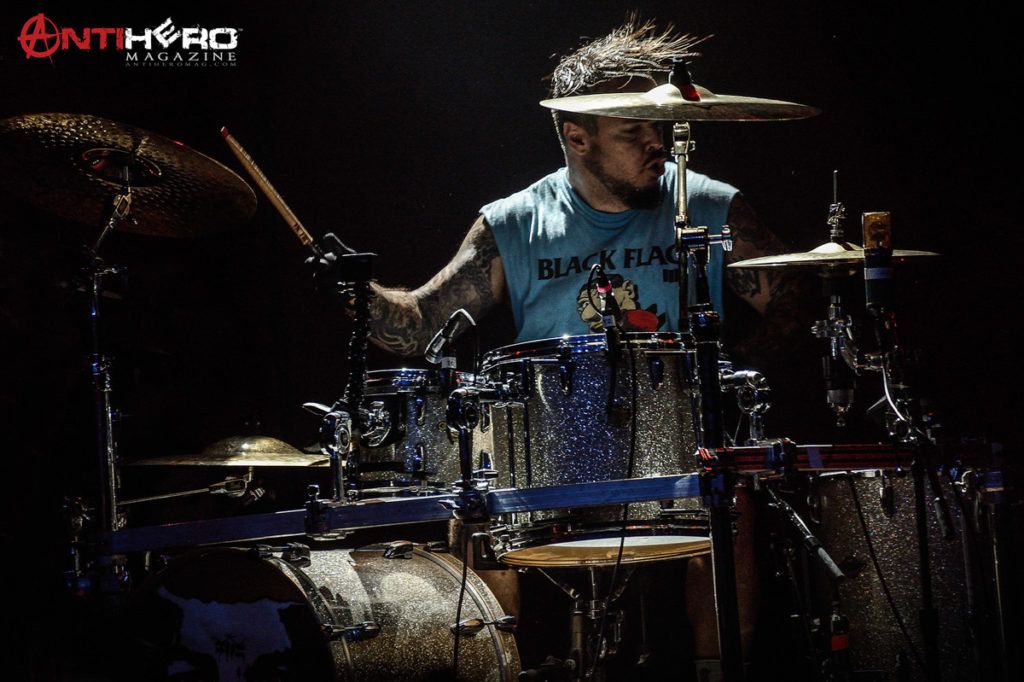
I guess I could ask you, what is, if someone said to describe the difference between the difference, now I know you’re not in Soulfly, but describe the difference between Cavalera Conspiracy, how would you describe those two bands?
I don’t know, man. I can’t. Soulfly is a completely different animal. That’s something that Max created, so he’s the one that needs to answer that. If you ask me about something that I am completely involved in, I can have a better opinion on it.
What’s next after this tour, what’s going on with Cavalera Conspiracy, what is the future?
We still have two shows in the U.S., and then we have a South American tour that goes from Uruguay all the way up to Mexico City, almost a month. Then, we hit the European festivals like Hellfest, Download, Blast Off. And, we’ll see. So far that’s all we have. We have a few more shows coming up like Israel, and Columbia. This year we’re trying to concentrate a lot on Cavalera, between what me and Max do on all our projects, we’re trying to have a little more focus. We really enjoy the new record, so we really want to tour that as much as we can.
Talk about the new record, it just dropped recently. Talk about what the feeling of this record is versus the first two.
I don’t know. Each album really reflects what me and Max were, at the time. It’s really difficult to point where there’s different this from that. It’s really what me and Max wanted to do at that moment. If tomorrow we do another thing, it’s definitely going to be different. We don’t know what direction it’s going to take. I think that’s the cool thing about doing Cavalera, because it’s not really so much tracked in the past, it’s something that is in the future. Of course when me and Max sit together those elements show up of our past, but it’s not based on that. [separator style=”line” /]

